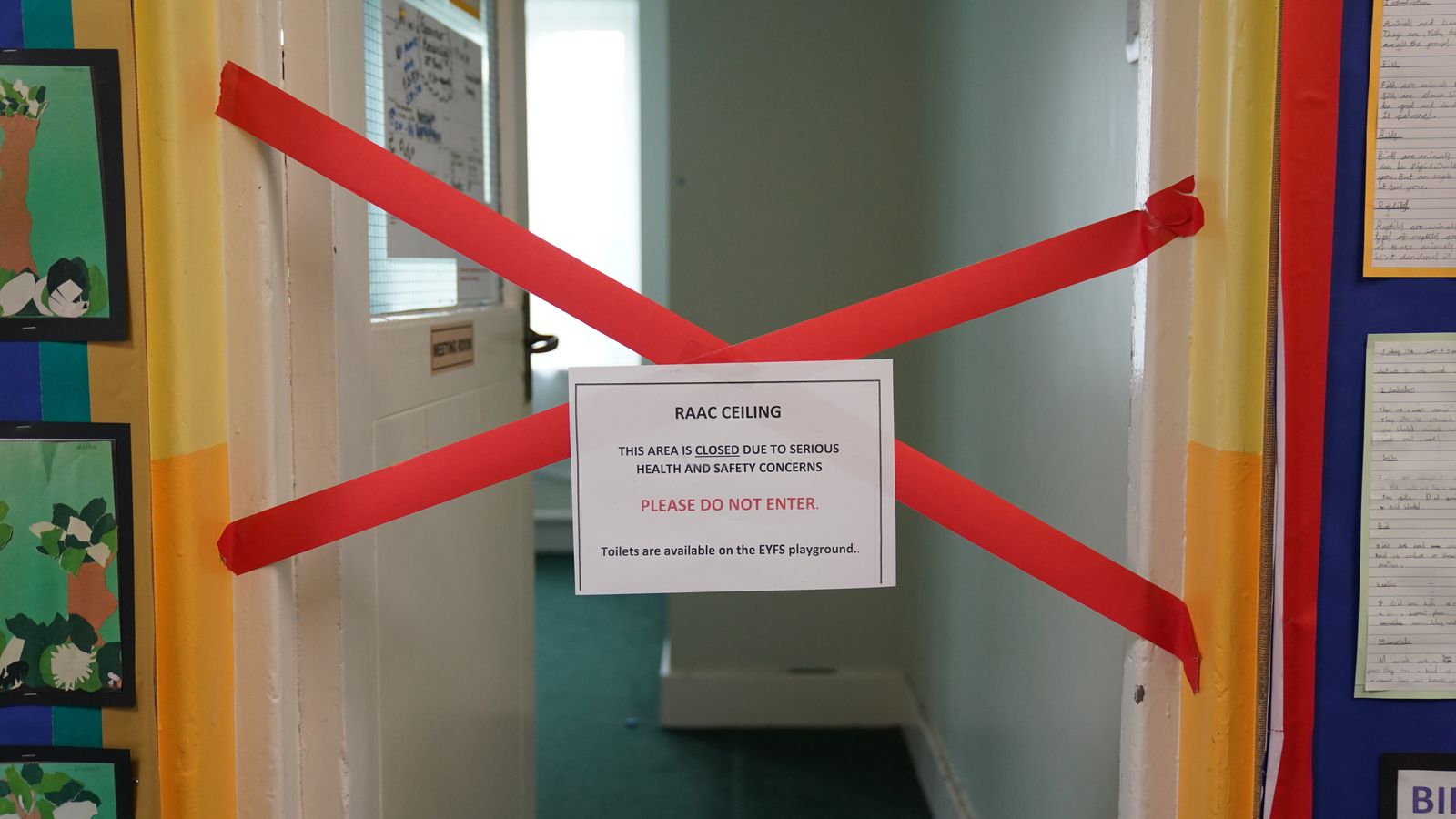Concrete that could be at risk of collapse has been identified in another 17 schools and colleges in England, the government has confirmed.
An update from the Department for Education (DfE) said the reinforced autoclaved aerated concrete – known as RAAC – had been found in the buildings, bringing the total to 231 as of 27 November.
In addition, one setting – Abingdon and Witney College – was recorded as a new case and an assessment is being carried out, the DfE said.
The list suggests at least three secondary schools are providing a mix of face-to-face lessons and remote learning as a result.
Bramhall High School in Stockport, Greater Manchester, St Thomas a Becket Catholic Secondary School in Wakefield, West Yorkshire, and St Clere’s School in Stanford-le-Hope, Essex, are all offering some remote learning.
The last update from ministers in October set the number at 214.
The new schools and colleges listed are:
• Abingdon and Witney College
• Barnet and Southgate College
• Bramhall High School
• Cheadle Hulme High School
• Fairfields School
• Featherstone High School
• Glade Academy
• Haslingden St James Church of England Primary School
• Hodge Hill College
• Pewley Down Infant School
• Royal School, Manchester
• Shadwell Primary School
• St James Academy
• St John Fisher Catholic Primary School
• St Thomas à Becket Catholic Secondary School
• St Thomas’ Church of England Primary School Stockport
• Stour Valley Community School
• The Oldham College
The RAAC scandal erupted at the start of the school year, with thousands of pupils facing school closures and delays to the start of term after the government identified the material in their buildings.
Ministers said at the time that hundreds of schools could be affected, as they urged education leaders to return building surveys to the department to identify any suspected RAAC.
Education Secretary Gillian Keegan told MPs on the education select committee on Wednesday all responsible bodies of settings with buildings built in the target era – the years that could have contained RAAC – have now submitted responses.
“Now we do expect there will be some more because as we go back for follow-up survey work we will identify a few more,” she said.
“There will only be probably a handful more cases because it’s definitely massively slowed down.”
Be the first to get Breaking News
Install the Sky News app for free
Read more from Sky News:
People removed from COVID inquiry as Johnson apologises
Kim Jong Un in tears over North Korea birth rate crisis
The DfE’s top official, permanent secretary Susan Acland-Hood, told the committee 41 premises now have temporary buildings on site.
Some sites may need temporary buildings that won’t have them yet, and others that don’t might still benefit from some specialist units “in order to make sure they can deliver the full curriculum”, she said.
She added: “We’ve got about 110 schools for where we think mitigation is the right approach rather than temporary buildings.
“And we’ve also got schools where it may be better for them to share facilities with a nearby school for things like science labs.”






















